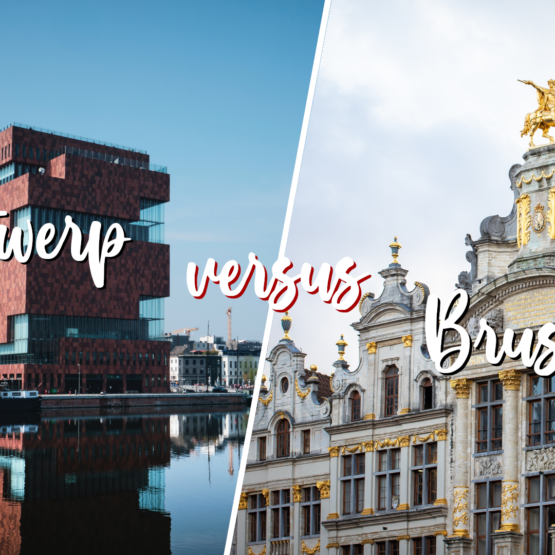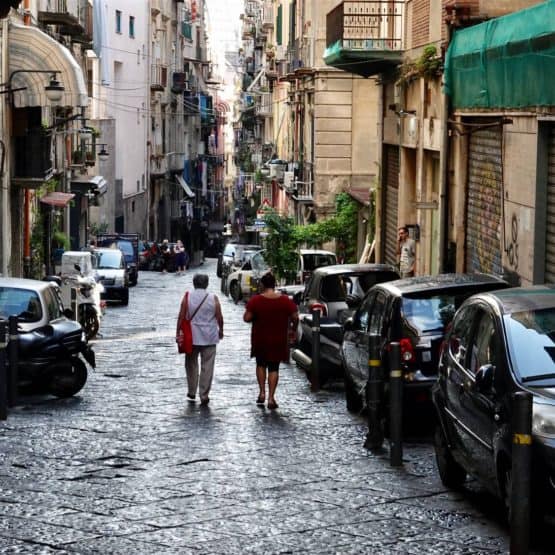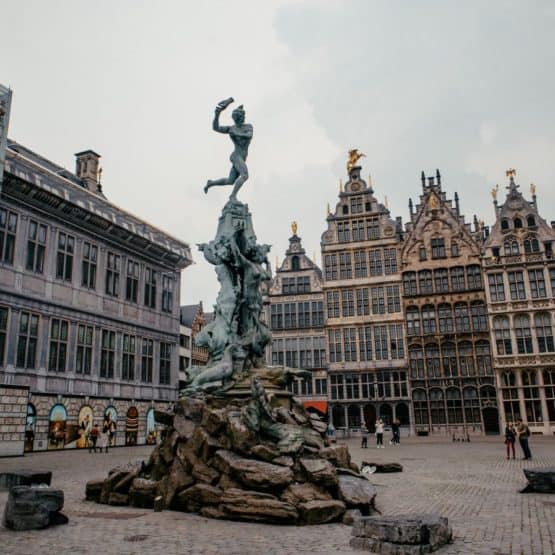In this week’s Free Spirits Friday interview, I’m asking Martin and Misha from Breaking Barriers some questions about their very unique situation. He’s Irish, she’s Lebanese, and they live together in Saudi Arabia. I’ll let Martin explain the rest of their fascinating story.
Let’s just get right into it.
Note: this interview series also includes interviews with Nomadic Matt, Wandering Earl and Never Ending Footsteps, among others. Check out the other interviews here!
Introduce yourselves to us and tell us the crazy story of an Irish man and a Lebanese woman living and working in Saudi Arabia.
My name is Martin. I was born and raised in Ireland and I came to live and work in Saudi Arabia in 2011. My wife’s name is Misha. She is a Lebanese citizen but she grew up in Saudi Arabia. Our story is unusual, in the fact that there are so many differences on the surface between us, yet at the same time we have so many similarities. It was these similarities that brought us together and to where we are today.

We both enjoy traveling a lot. This led us to start our own website, Breaking Barriers, where we document our trips and give information for others thinking of going to those countries. We focus mainly on countries in the Middle East, and other countries which are not on people’s top lists of countries to go to.
When not traveling we are researching how to enhance ourselves so we can get the best out of life, whether learning to scuba dive and skydive, or researching our travel plans for upcoming trips.
For more information about us see this page on our website.
What brought you together?
It was initially our joint interest in travel that made us want to travel together and spend more time together. As I had never been to Lebanon and was planning a trip there, it coincided with the time that Misha would be there as part of her yearly trip home. I decided that touring the country with a local would allow me to get the best experience possible out of the country.
Naturally, this worked both ways. After that trip we soon started planning her first trip to Ireland. This time it was me taking on the responsibilities of the tour guide and trying to give her as good an experience as I got in Lebanon.
What’s it like for Westerners (and foreigners in general) to live and work in Saudi Arabia?
For Westerners the hardest part about living and working in Saudi Arabia is getting used to the cultural differences. Once you adjust to these differences and accept them, life becomes much easier.
People from an Arabic background find living here easier due to speaking the language. They also have more experience with the culture. However, it is still not their country. In other words: there are things that they have to come to terms with as well.
In the last year, the country has made it a lot easier for women to adjust to life here. The government lifted the driving ban, which allowed them to be more independent. Moreover, they no longer have to rely on taxis to get to the shops or to work.
There is a large expat population, from Philippines’, and sub-continental Asia, to Africa and Europe. This mix of nationalities, race, and cultures, makes the working environment one that takes a little bit of time to get used to.
Living and working in Saudi Arabia as a foreigner isn’t easy, but it’s not impossible.
What is your favourite part about life in Saudi Arabia?

For us there are a lot of benefits to living in Saudi Arabia. And that’s not just because of the amount of vacation days we get each year. Sure, they allow us to travel often, but there’s another thing that’s very important to us. The location of the region. Saudi Arabia is located close to three other continents. This means that Africa, Asia and Europe are only a short plane ride away.
It’s just great to be able to experience another culture like this. Especially for me. I grew up in Europe and life here is very different to what I grew up with. Living here, you learn about different cultures and how to interact with people from other backgrounds. That makes you a more patient and more positive person.
Then, of course, there is the fact that we have access to travel within the country itself. As it’s currently not accessible for tourism, we can see attractions and places that not many other people get the chance to.
Is it tough to travel with your combination of passports? Are there places you want to go to but aren’t able to?
It’s not so tough. For any country we go to, we check visa requirements first. However, the only drawback is that our passports are of two different rankings. This means that while one of us may need a visa, the other one may not. It all depends on which country we travel to so we need to make sure to have it all figured out beforehand.
For example: in the Middle East, the Lebanese passport has free travel to more countries than the Irish passport. While Misha can get in visa free, I might need to apply for a visa. And sometimes that means I have to wait at a long queue in the airport. It works the other way around in Europe. My Irish passport allows me to travel freely, but Misha needs to apply for the Schengen visa. If travelling to Ireland, she needs to get a second visa for this, since Ireland is not under the Schengen agreement.
Currently, due to restrictions between the majority of Middle Eastern countries and Israel, Misha cannot travel to Israel at all. So for the time being, Israel is inaccessible to us. Hopefully this will be resolved some time soon and we can travel there and tour the country together.
What do you think is the significance of the comfort zone when travelling?
When travelling, you want to be as comfortable as possible. However, we often try to step out of our comfort zone. We feel that if you only do things you’re comfortable with, you will miss out on a lot of experiences that you would have enjoyed. We strongly believe that you do need to step out of that comfort zone every so often in order to get the real feeling of a country or culture.

Do you feel that the image of Saudi Arabia and the Middle East is obstructing travellers from going there?
In a word, yes. The Middle East is currently very much overlooked as a travel destination. When people do go there it is mostly to Jordan and Dubai. But there is so much more to discover. For example: Lebanon, Oman, and even Saudi Arabia. Although it is currently inaccessible for tourists, talks are ongoing to change this.
Unfortunately there has always been a negative image of the Middle East, and it has been projected poorly on the global stage. We like to try and present the Middle East from our perspective, as people who actually live here. This is a much more positive view.
Saudi Arabia has been in the news a lot over the past year due to the changes that have taken place here. Think about the reintroduction of cinemas and the decree stating that women can now get driving licences. It is a country that is still a mystery to a lot of people who have not been here. Maybe that’s what makes it so special to live here, knowing that we are some of the lucky few who get to see what the country actually has to offer.
How dangerous is it to travel to / live in Saudi Arabia?
We have never felt in any danger here. Thankfully. Like any country, there are places where you would not go as a foreigner. But this can be said about every country in the world.
The police is very present here, and we have never experienced any problems or anything leading us to think we should leave the country.
In fact, when you go to local markets or trade shops you will find that a lot of the locals are happy to see you and will try to engage with you. They want to find out where you’re from, how long you’ve been here, and how you find living in Saudi Arabia.
With news reports we see from some European countries at the moment we feel safer in Saudi Arabia than we would back in Europe. Of course, this also comes down to respecting the country and its people. Like any country we go to, we try to respect the local people, their country and their culture. If given the chance, we try to interact with them and experience things their way to know the true feeling of the country.
What’s the one thing every future expat in Saudi Arabia should know?

There is a lot of research to be done when coming here first, as there are a lot of cultural differences to get used to. From timing your shopping trips properly due to shops closing at prayer time, to learning how to stay extremely aware of your surroundings when driving.
Living in Saudi Arabia can offer you a great opportunity to develop yourself. By this, we mean you can develop yourself personally, by learning the language and interacting with the locals, and taking every opportunity to witness and experience the generosity of the Arab world. If you get taken to a restaurant by a local you will certainly not leave feeling empty! In fact you will be lucky if you can find space on the table to put anything down!
If we had to pick one thing that future expats should know, it’s to learn to accept the culture and the traditions of the country. You are the guest here and it’s only right to respect the country you are in. You will need to adapt and be accepting of everything that happens here.
We also created a guide for people who are planning on going to Saudi Arabia!
Can you get around with just English in the Middle East?
In a nutshell, yes. Most of the dealings you will have will be with people from the Philippines, India, or Pakistan, and of course a lot of Arabs. However most of the Arabs will be from Lebanon, Egypt, or other northern Arabic countries. The majority of these people will speak English.
You might find yourself dealing with someone who does not know a lot of English. In that case, you will find yourself using a lot of hand signals. In the Arabic world hand signals are used a lot as a form of expression so you will see this a lot anyways.
Of course it’s good to learn some Arabic, especially the greetings and some basic phrases. Not only will it show that you have made the effort to try and immerse yourself more but it will also come in useful if you are at a local market or somewhere that not a lot of foreigners go.
In what ways does the world have a wrong perception about the Middle East?
The Middle East is often portrayed as a dangerous place to be. People often discourage travelling to the Middle East. It’s often displayed as a region where you cannot enjoy yourself or where there are no rights for foreigners. These are not true. There are lots of things to do in the Middle East, from exploring well preserved ruins to sampling the culture of an extremely old civilisation. See our guide to Lebanon as an example.
A lot of people also have the wrong idea about the region. They believe that it is extremely restrictive, that women need to be fully covered, that you will get put in prison for the smallest things, and that capital punishment is a daily occurrence. All of these couldn’t be further from the truth.
Yes, you will see women that are covered up, but this is not a requirement. It is more a cultural upbringing. You will also see a lot of women walking around wearing t-shirts and jeans. Except in Saudi Arabia where the wearing of a long dress – called an abaya – is a requirement. But a lot of women here will not have their faces and hair covered.
Capital punishment is only carried out for extreme crimes, like murder. Not unlike the USA, but for some reason people seem to make a big deal of the fact it happens in some Middle Eastern countries but don’t bat an eyelid that it happens in the USA.
The Middle East is an area that is unique to travel to. You need to be respectful and conscious of its culture and traditions. But by being like this, you will find that it has a lot to offer as a travel destination. In our opinion, everyone should try to visit some of the countries here at least once. Go beyond the usual haunts like Dubai, and enter the less travelled areas such as Lebanon, Oman and Bahrain. You will realize that there is much to offer here, and your experiences will allow you to see the true beauty of the Middle East.
Thank you so much to Martin and Misha for taking the time to answer these questions. If you’re interested in their stories, you can follow them on their blog Breaking Barriers, on Facebook, on YouTube, on Pinterest, on Twitter and on Instagram.







